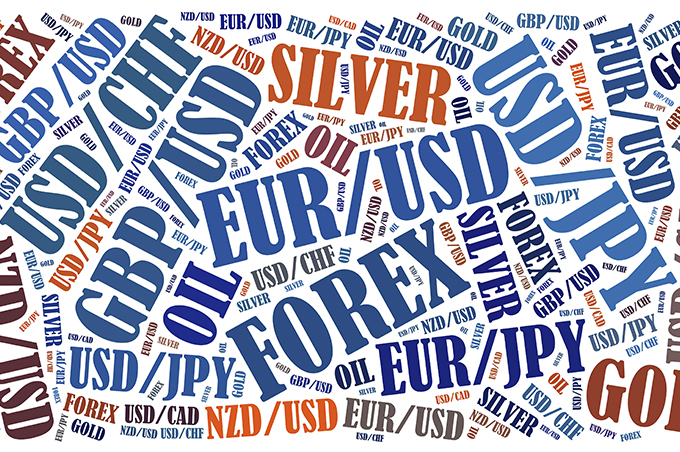The following Forex news reports are the latest developments of the Forex market. The news reports are updated frequently and include all the events that affect the foreign exchange trading industry.
Most Recent
In trading in Tokyo today, the Japanese Yen had small gains, but remained in striking distance of a 6-week low versus the U.S. Dollar, and a month-long low against the Euro. All this as investors continue to worry about the health of the Japanese economy. According to a foreign securities manager from Okasan Securities in Japan, very few investors are aggressively picking in the Japanese Yen, because most investors don’t find Japanese assets appealing right now. Any gains in the Yen is attributed to carry trade unwinding, where investors use lower yielding currencies to finance their purchase of assets and currencies elsewhere that are higher yielding.
Today, February 19, 2009 at 2:56 pm (JST) in Tokyo, the U.S. Dollar dipped after hitting a 6-week high versus the Japanese Yen and a 3-month high against the Euro, but it remained firm as U.S. government’s efforts to address the housing crisis supported its safe haven appeal.
On February 18, 2009 at 7:29 GMT in Tokyo, the Euro resurged from a 2-month low against the U.S. Dollar, but worries remained about the health of the regional banks, following warnings from ratings agencies which prompted concern over the impact of a profound recession in Eastern Europe.
Top Forex Brokers
In early New York trading, the Euro suffered a major loss, falling to its lowest point in almost three months versus the U.S. Dollar, following the Moody’s credit rating service threat to downgrade those major European banks which have significant risk exposure in Eastern Europe. According to a senior currency strategist located in Toronto, Canada, investors are looking closely at the bad news coming out of Eastern Europe, including the prospect of a prolonged recession, and the recent GDP slide in Japan’s economy.
In Tokyo trading today, February 16, 2009, the Japanese Yen gained against other major currencies after the G-7 finance ministers, at their weekend meeting, made no specific references to the strength of the Japanese currency. The Japanese Yen edged up, although the latest data showed that the Japan's economy shrunk sharply during the final quarter of last year, as investors felt that the numbers are reasonable and are within expected ranges. Japan's Gross Domestic Product fell by 3.3% in the 4th quarter of 2008, or an annualized 12.7%, the sharpest drop since 1974 during the first oil crisis.
Today in early Tokyo trading, the Japanese Yen and the U.S. Dollar fell broadly as stock markets in the region rose on hopes that the U.S. government is planning to subsidize mortgages in the U.S. and as investors prepare for the G-7 finance officials meeting, currently being held in Rome.
The U.S. Dollar and Japanese Yen rose today as investors felt comfortable with the perceived safety of both currencies as stocks fell, prompted by concerns about the effectiveness of government policies to curb recession and rescue the ailing banks.
The Pound Sterling lost ground versus other major currencies in London trading today following the release of a report issued by the Bank of England which opened the door for additional monetary easing. The quarterly Inflation Report revealed that the Bank of England is predicting a sharp pull back on inflation, below the set target. One Bank of England official suggested that additional easing of liquidity may become necessary. That statement sent short Sterling rate futures markedly higher and the Pound Sterling lower as forex markets scurried to set prices within the relaxed monetary policy.
The U.S. Dollar lost ground versus the Yen in early morning trading in Tokyo today in cautious trading just prior to the release of key jobs data which is expected to portray a more dismal snapshot of the U.S. jobs market than had been originally expected. The U.S. Dollar touched on a 1-month high versus the Yen yesterday, on U.S. shares which rallied in the hope that the Federal government’s bank rescue plan will include the deferral of an important accounting rule; the suspension of which will likely thaw investors’ risk aversion.
Bonuses & Promotions
On February 4, 2009 at Tokyo, the U.S. Dollar and the Japanese Yen saw some gains again, with investors anticipating a brighter market sentiment driven by stronger than expected housing data for the United States that had been released the previous day, which allowed caution to trickle back in.
The U.S. Dollar and Japanese Yen both lost ground in early London trading today following movements by the government of Australia to further stimulate their flagging economy with a key interest rate cut and the unveiling of a new stimulus package, and the Bank of Japan’s recently announced scheme to buy shares. Australia’s Reserve Bank reduced the key cash rate by 1%, to a new low of 3.25; this move was widely expected, however
The Japanese Yen saw some gains versus other major currencies in early trading today in Tokyo, after the release of less than favorable economic data from the Euro Zone and the United States raised fears of investors of the strong possibility of a longer than expected economic recession. As a result, investors shied away from high yielding currencies including the New Zealand and Australian Dollars, and turned toward the safe haven Japanese Yen.
Subscribe
Sign up to get the latest market updates and free signals directly to your inbox.The Pound Sterling lost ground today against the U.S. Dollar, as continued losses in the equity markets heightened risk aversion, and helped prop up the greenback. However, the Pound was able to gain an edge on the Euro, coming close to 90 Pence, which was the highest price in 11 days.
On January 29, 2009 in Tokyo trading, the U.S. Dollar dipped slightly against the Japanese Yen, after rising yesterday due to a surge in U.S. shares as the Federal Reserve did not commit itself to purchase longer term Treasuries. Yesterday, the Federal Reserve maintained interest rates near zero after a two-day meeting, although it was announced that they were prepared to acquire longer dated Treasury debt, if it was perceived that that would improve the liquidity crisis.
On January 28, 2009, in Tokyo, the U.S. Dollar edged up versus the Japanese Yen as an enhanced appetite for risk encouraged investors to move out of the safe-haven Yen. Meanwhile the U.S. Dollar dipped against the Euro as investors awaited the outcome the meeting at the Federal Reserve bank, which will be concluded later today and will reveal the steps being taken by the Fed to ease the credit crunch. The benchmark interest rate in the United States is almost near zero, investors are looking for additional policy measures, such as the acquisition of long-dated Treasuries.



